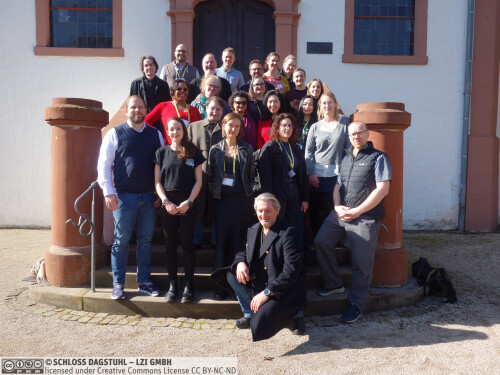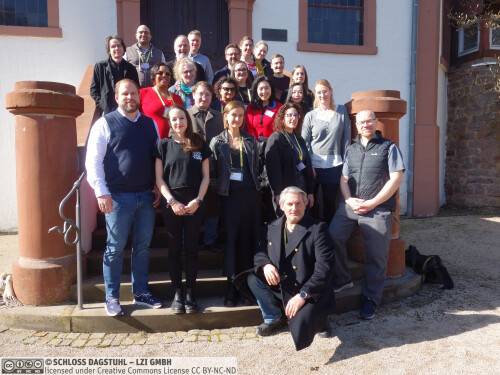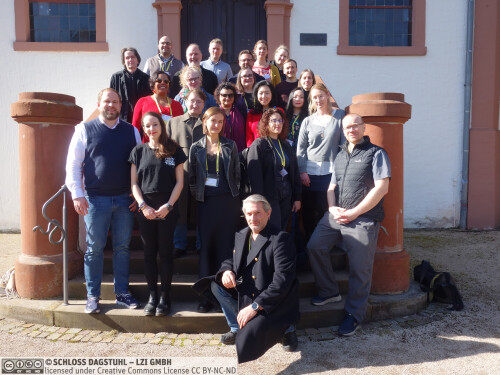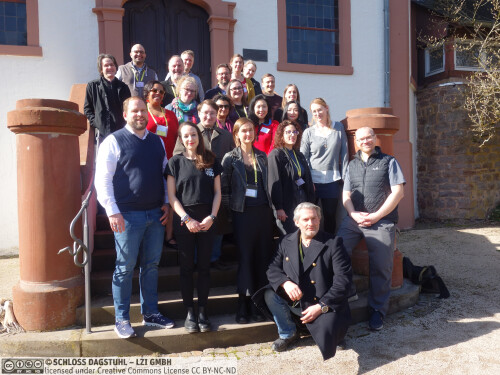Dagstuhl Perspectives Workshop 25102
The Future of Games in Society
( Mar 02 – Mar 05, 2025 )
Permalink
Organizers
- Anders Drachen (University of Southern Denmark - Odense, DK)
- Lennart Nacke (University of Waterloo - Stratford, CA)
- Johanna Pirker (LMU München, DE)
Contact
- Marsha Kleinbauer (for scientific matters)
- Jutka Gasiorowski (for administrative matters)
Dagstuhl Reports
As part of the mandatory documentation, participants are asked to submit their talk abstracts, working group results, etc. for publication in our series Dagstuhl Reports via the Dagstuhl Reports Submission System.
- Upload (Use personal credentials as created in DOOR to log in)
Dagstuhl Seminar Wiki
- Dagstuhl Seminar Wiki (Use personal credentials as created in DOOR to log in)
Shared Documents
- Dagstuhl Materials Page (Use personal credentials as created in DOOR to log in)
Schedule
- Upload (Use personal credentials as created in DOOR to log in)
The goal of this Dagstuhl Perspectives Workshop is to provide a roadmap for the future of games.
Today, the global digital gaming landscape, embraced by four billion individuals playing games, not only drives a $230+ billion industry but also supports a significant cross-disciplinary academic domain. With its roots embedded in diverse cultures, gaming has transcended entertainment to become social hubs, educational platforms, citizen science conduits, and a foundational part of human existence. Yet, this proliferation has highlighted a number of challenges including impacts on physical and mental wellness, contentious monetization strategies, and a dichotomy of societal narratives surrounding gaming. The rapid innovation in interactive technologies within gaming propels not just an industrial sector, but a breadth of research across computer science, including AI, data science, and Human-Computer Interaction (HCI). Despite early academic consensus on gaming's potential to revolutionize education, foster social cohesion, and personalized engagement, the promise remains largely unfulfilled. The monetization quandary and acknowledged societal challenges like game addiction shadow the many reported positive impacts of gaming.
A shift in the epicenter of gaming research from academia to the industry has further widened the chasm between them, despite a shared talent pool. The industry's resource monopoly has, in some instances, stymied the scalability of academic endeavors aimed at positive societal impact through gaming. In 2023, policy frameworks by the EU and UK, alongside the UN's future goals, underscore the anticipated societal contributions of gaming. However, a coherent response from the games research community to these policy expectations is absent.
This Dagstuhl Perspectives Workshop endeavors to bridge this gap, aiming to craft a forward-looking roadmap for both academic and industrial stakeholders in gaming. The focal point is to align gaming's colossal presence with societal expectations, informed by policy frameworks. The workshop will be anchored in a cross-disciplinary approach reflecting the games research domain, to forge actionable strategies. Through working groups, participants will delve into specific topics and build strategies aimed at guiding future work in the domain across academia, industry and policy. The aim is to provide a manifesto and roadmaps rooted in reality-based practice, propelling a constructive discourse on harnessing gaming's potential for positive societal impact.
 Anders Drachen, Lennart Nacke, and Johanna Pirker
Anders Drachen, Lennart Nacke, and Johanna Pirker
Please log in to DOOR to see more details.
- Alessandro Canossa (Royal Danish Academy - Copenhagen, DK)
- Alena Denisova (University of York, GB) [dblp]
- Anders Drachen (University of Southern Denmark - Odense, DK) [dblp]
- Catherine Flick (University of Staffordshire - Stoke-on-Trent, GB)
- Guo Freeman (Clemson University, US)
- Julian Frommel (Utrecht University, NL)
- Kathrin Gerling (KIT - Karlsruher Institut für Technologie, DE) [dblp]
- Casper Harteveld (Northeastern University - Boston, US)
- Aleshia Hayes (University of North Texas, US)
- Linda Hirsch (University of California - Santa Cruz, US) [dblp]
- Simone Kriglstein (Masaryk University - Brno, CZ)
- Enrica Loria (Keen Software House - Prague, CZ)
- Regan L. Mandryk (University of Victoria, CA) [dblp]
- David Melhart (University of Malta - Msida, MT) [dblp]
- Pejman Mirza-Babaei (UOIT - Oshawa, CA)
- Lennart Nacke (University of Waterloo - Stratford, CA)
- Johanna Pirker (LMU München, DE) [dblp]
- Katja Rogers (University of Amsterdam, NL)
- Magy Seif El-Nasr (University of California at Santa Cruz, US) [dblp]
- Vero Vanden Abeele (KU Leuven, BE)
- Günter Wallner (Johannes Kepler Universität Linz, AT)
- Donghee Wohn (NJIT - Newark, US)
- R. Michael Young (University of Utah - Salt Lake City, US) [dblp]
- Fabio Zünd (ETH Zürich, CH)
Classification
- Artificial Intelligence
- Human-Computer Interaction
- Multimedia
Keywords
- game development
- games research
- artificial intelligence
- HCI
- player research





 Creative Commons BY 4.0
Creative Commons BY 4.0
